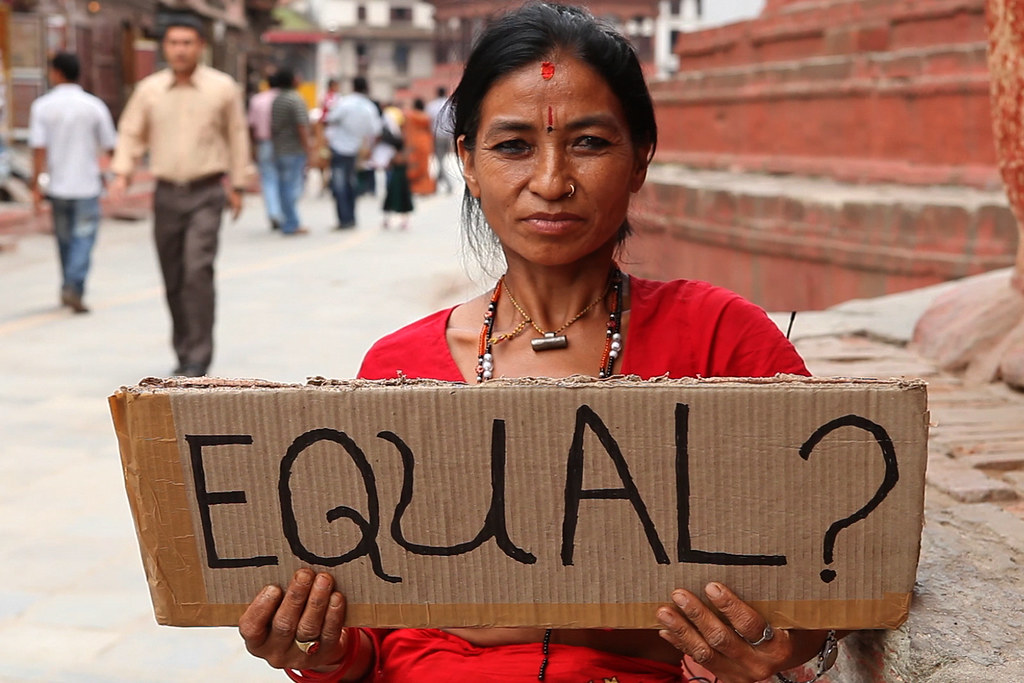By Carlos Gradin and Miguel Niño-Zarazúa
The many faces of inequality
Measuring inequality isn’t as simple as it may seem. We know that since the 1970s global inequality has been falling in relative terms, but absolute inequality has been increasing over the same period. There are also substantial differences in trends across the different regions of the world. In North America, Europe and sub-Saharan Africa inequality has been increasing steadily in both relative and absolute terms, while in Latin America, East Asia, and the Pacific, absolute inequality increased while relative inequality fell.
Identifying the causes of inequality
Research on economic inequality is an important part of addressing the issue. By measuring existing inequality and identifying the driving forces behind it we can point to priority areas where policy makers can act.
Today, using UNU-WIDER’s World Income Inequality Database (WIID) we can access data from around the world and look at the levels and trends of both relative and absolute inequality on a global, regional, and country level. This dataset allows us to identify patterns, and in combination with other data sources, see what policies have been effective in countries where inequality is falling.
What does the last decade of research at United Nations University World Institute for Development Economics Research (UNU-WIDER) tell us about Inequality?
Economic growth
Our research has shown that the drivers of economic growth in a country can impact inequality. For example, economies where growth is driven by natural resource-based industries tend to have higher levels of inequality than countries with economies based on agriculture or manufacturing. This is evident in Mozambique where impressive economic growth driven in part by natural resources has also been accompanied by increasing inequality.
Policy
However, we have also found that there are things that can be done at a policy level to deter inequality. Having functional and inclusive health and educational systems is a key step, as is having well-designed and efficient fiscal and social protection policies — it is in these areas that we need governments to step in and act.
History
Some inequalities, such as the disadvantages faced by women and ethnic groups, are rooted in history. Understanding how certain groups are systematically excluded or discriminated against in the labour market is essential if we are to address these problems. For example, in South Africa, one of the most unequal societies in the world, we find that while since the end of apartheid there have been important political, social and economic reforms, the shadow of apartheid has governed the transition, protecting some pre-existing structures of political and economic power.
In acting to reduce inequality it is important that countries move towards evidence-based policy-making, prioritizing those policies with the largest social returns. Being able to produce and access freely available comprehensive data can help researchers, development professionals and policy makers learn from the policy successes and failures of other countries and create policy recommendations based on proven impact.
Carlos Gradín is a Research Fellow at the United Nations University World Institute for Development Economics Research (UNU-WIDER). He is on leave of absence from his previous appointment as professor of applied economics at the University of Vigo. Carlos holds a PhD in economics from the Autonomous University of Barcelona.
Miguel Niño-Zarazúa was Research Fellow at the World Institute for Development Economics Research of the United Nations University (UNU-WIDER) from 2011 to 2019. Previously he was a Research Fellow at the Brooks World Poverty Institute and the Chronic Poverty Research Centre at the University of Manchester, where he investigated the long-term effects of social transfer programmes in developing countries. Miguel holds a PhD in Economics from the University of Sheffield, UK.
Image: World Bank Photo Collection, ©Stephan Bachenheimer/World Bank

